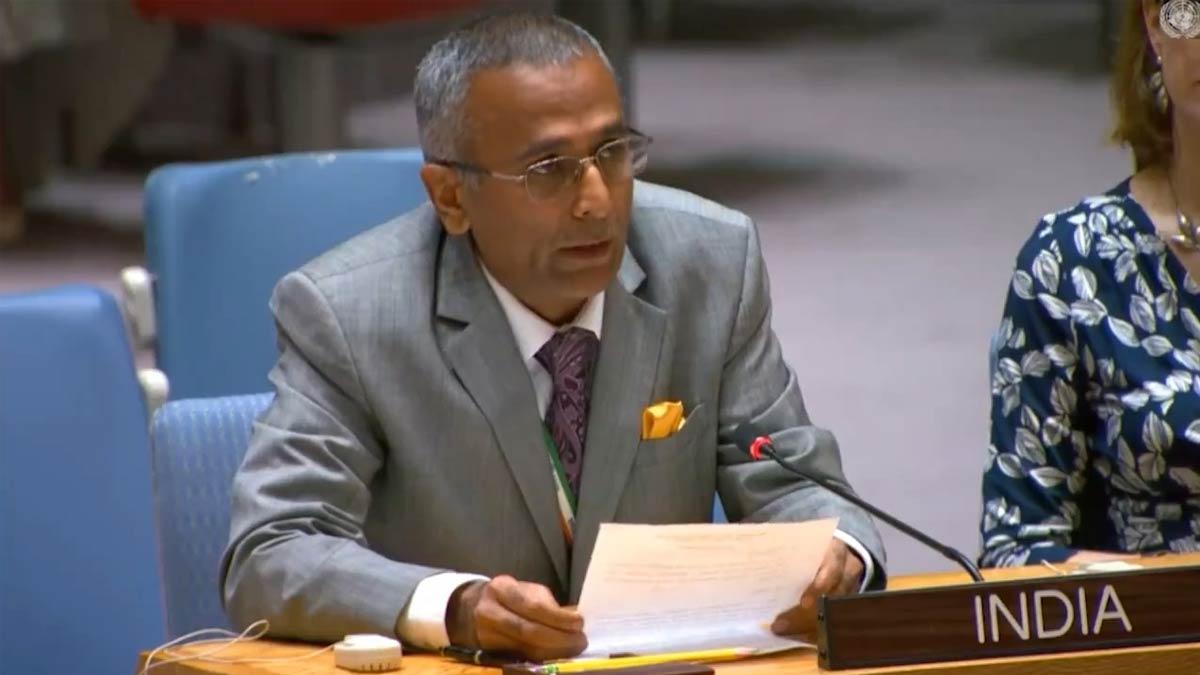According to R. Ravindra, India's charge d'affaires at the UN, the ineffectiveness of the Security Council has been because of its inability to effectively represent different geographic regions. He told that it is very important to expand the Council by giving permanent membership to Africa in order to increase effectiveness.
Speaking for the G4 group of countries, India, Brazil, Germany and Japan, he told an open debate on reform of the Security Council, "A primary reason for the underperformance of this critical institution remains the non-representation of Africa, Latin America and the Caribbean and the under-representation of Asia-Pacific in the permanent category.".
He said that, for purposes of building a more representative and more functional Council, the representation from Africa in both the permanent and non-permanent categories is very imperative.
This Council meeting was led by Sierra Leone, which holds the rotating presidency, to advance the cause of Africa for greater representation inside the Security Council. Sierra Leone's President, Julius Maada Bio, drew attention to the disparity: if Africa has more than 1.3 billion people, and the continent's 54 nations make up 28 percent of membership of the UN, then permanent seats on the Council should not be denied to Africa.
"Almost 80 years since its establishment, the Council has remained in suspended animation" since 1945 when the UN was established, with most countries in Africa still under colonial rule. He said.
Bio said Africa should get two permanent seats on the UN Security Council, in addition to two more non-permanent seats than it already has three.
He reiterated that the G-4 "fully supports these legitimate demands and aspirations from Africa, underpinned by trust and mutual respect in their relationship with the continent". ironical it is, with more than 70% of items considered in the UNSC agenda coming from Africa, the Continent still stays without a permanent voice in its decision-making process, he further added.
He called for reforms in the council to step up IGN text-based negotiations with a view to completing the reform process during the UN's 80th anniversary next year.
He further mentioned that at last year's G-20 Summit, conducted during the Presidency of India, there was the inclusion of Africa as one of its members into the grouping of major industrialized and emerging economies—one of the facts acknowledged by Bio.
Bio emphasized that the situation of Africa should be a "special case" in the reform process, and he urged, moreover, that this process should be fast-tracked with a view to completion by the 80th anniversary of the UN.
Many speakers at the meeting joined in the call for the rush of reform to rectify Africa's past under-representation, delayed by a small number of countries calling themselves Uniting for Consensus that wants to de-link Africa's case from the wider controversies of other countries' demands.
India views, along with others and as part of the G-4, Africa's demand for reform as an escape route out of the continuing stalemate.
However, the push to deal with Africa as a "special case" on the road to the upcoming Summit of the Future and the UN's 80th anniversary may well lead to a big concern: how far-reaching the reform will be or if it will only be partial—if it happens at all.
Marco Romiti, Minister Counsellor in the UN Mission of Italy, which leads the UfC, spoke out against an enlargement of permanent members. Though Pakistan's permanent representative, Munir Akram, acknowledged a special case for Africa, he spoke out against an augmentation of permanent members and called instead for long-term seats for that continent.
When asked what his strategy would be to overcome any opposition from UfC, a confident Bio had asserted the strong African case, saying, "We don't consider the opposition. We have a genuine case and that is what we are pushing. We know that there are others … it is total reform, but we are talking for Africa." As he puts it, against resistance, Africa will finally get what belongs to them.
Akram criticized India and G4, pointing out the difference between the African demand and that of the four states seeking permanent membership for themselves. The Permanent Representative of China, Fu Cong, joined in the criticism of India and G4; some countries, he said, were pursuing selfish interests in the debate relating to reform.
The UN Secretary-General Antonio Guterres put an accent on the urgency of reforming, warning that the "cracks" in the Council's foundation are becoming too significant to ignore and result in "deadlock, stalemate and stagnation" in the actions taken to counter global crises. He indicated that, conditionally, it is unacceptable that a continent as huge as Africa, with more than a billion people and 28 percent of UN membership, doesn't have permanent voice in the world's main body of peace and security.
Read also | Cyberattack Causes Delay in Musk's Interview with Trump
Read also | Trump Vows to Abolish U.S. Department of Education


















